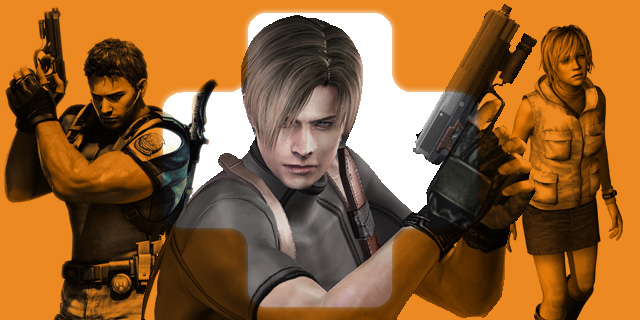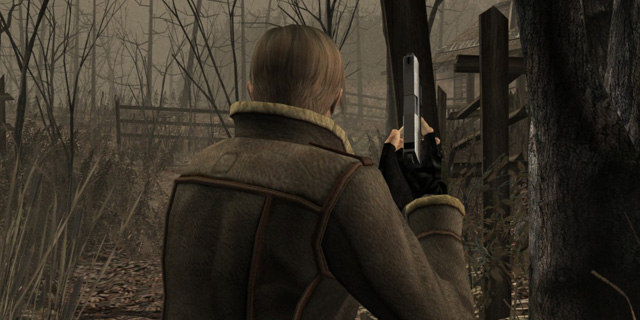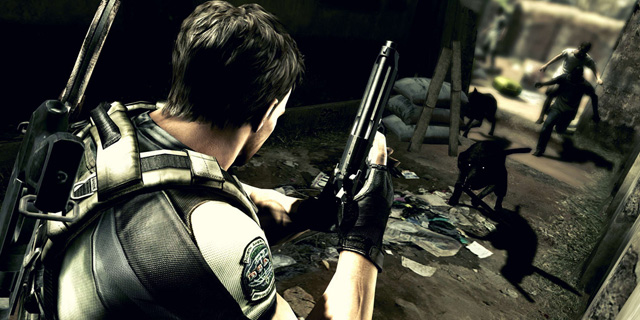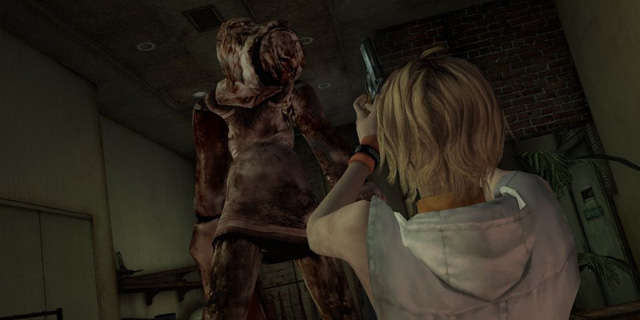
Resident Evil and Silent Hill have a lot more in common than just genre. Both were popularized on the PS1 and expanded upon during the following console generation. They moved in opposite directions, with Silent Hill sticking close to its roots and Resident Evil attempting to evolve. That being said, both remained shining examples of the horror genre. It wasn’t until the following generation when both series began to move in unrecognizable directions, with new games in each franchise met with mixed reactions.
The mystery behind why this happened isn’t a difficult one to solve, but both have failed to recapture what made them so successful in the first place, leaving me to wonder exactly how these once-beloved franchises can be so easily mismanaged.
Let’s start with my personal favorite of the two, Resident Evil. I’ve played every main game in the series, a handful of spin-offs and have been a fan of the series since RE2 back on the PS1. That game terrified me plenty, yet I found myself captivated by its sometimes-clunky, otherwise-exciting gameplay and tense scenarios. I consider every main Resident Evil entry beyond that to be a hit, including one excellent remake and the pinnacle of the series, Resident Evil 4.

RE4 managed to move the series forward in such a way without losing anything that made it so memorable to begin with. It didn’t rely on as many cheap scares as the previous games, focusing more on building tension and atmosphere. Sure, it became more of a third-person shooter than a traditional survival-horror title, but I never found myself complaining while playing it. It still felt like a Resident Evil game from start to finish.
Everything I saw leading up to Resident Evil 5’s release was undeniably exciting. The actual game, however, failed to deliver on those promises and relied almost exclusively on the ridiculous (and sometimes awful) action sequences, especially during the last third. It was the first main Resident Evil game with co-op, which was fun, but introduced some new problems as a result. Some argue that RE4’s popularity is what undermined everything people loved about the series, but I argue that RE5 simply took it too far, resulting in an enjoyable, albeit uneven experience.
There was some tension, but after the open sections of the game, that went away completely. The enemy designs relied more on being completely disgusting than actually scary. Sure, the original games relied a little on the grotesque, but it was never quite as over-the-top. Once enemies began to wield firearms of their own and a “cover system” was thrown into the mix, RE5 became almost unrecognizable as Resident Evil. It wanted to appeal to a new audience while attempting to maintain the old one, and failed spectacularly for both groups. When a series begins to lose its identity this dramatically, it’s both comical and depressing.

I’m actually playing through Resident Evil 6 right now. I felt almost obligated to check it out myself, despite many people warning me to skip over it completely. While it’s certainly better than some made it out to be, it’s almost a parody of what Resident Evil has become more so than an actual RE game. Its multiple campaigns each attempt a different “gameplay” style, but the differences are negligible. I could go on, but plenty has already been said about its quality (or lack thereof).
It’s funny going from the completely competent HD version of Resident Evil: Revelations, a game that, despite its flaws, actually feels like RE, to RE6. Playing both so close to each other only reveals two different paths the series could go, but I’m willing to bet the better of the two options won’t be it. If the team at Capcom in charge of the next Resident Evil game wants to continue down the path of the last, at least fully admit that instead of trying to cater to fans of the original games. Make something new, something fresh. Otherwise you’ll just end up with another soulless action game.
The story behind Silent Hill is different, but only marginally. The first four games in the series were mostly excellent because they stayed true to the universe the first game created. The gameplay began to feel stale by Silent Hill 4, but they all presented one of the most fascinating and disturbing horror settings ever created. Silent Hill 2 and 3 in particular are two of the best horror games I’ve ever played, and they still hold up remarkably well today.

Team Silent, the talented folks behind these horror classics, disbanded after the fourth game, leaving Konami with a popular franchise it clearly had no idea how to handle. The gameplay needed an evolution, and to the credit of the developers behind the follow-ups to Silent Hill 4, they stayed somewhat true to the style of the original games. Having said that, every Silent Hill game released after SH4 is disastrous.
With Resident Evil, you can point to two games and everything that went wrong with each title that led to the series as it is now. Silent Hill, on the other hand, has been clearly run into the ground from the moment Team Silent was gone. The development teams behind each Silent Hill game since have managed to take admittedly-sluggish gameplay and make it worse, as well as find ways to rehash elements of previous games in nonsensical ways. Why was Pyramid Head in Silent Hill: Homecoming, again? Oh, right. Because he’s popular.
Resident Evil’s decline was gradual compared to Silent Hill’s sharp thud the moment people realized any and all creativity that once graced the series left along with its original developers. I can’t say I was ever angry about the way these two series have been handled in recent years, but it’s hard not to find it depressing. Sure, this could be said of many series in gaming’s past, but these two share such a similar history that it’s almost scary how akin their downfalls are. You can examine many classic gaming franchises and probably see something similar, but these two stand out simply because they represented the best of a genre during the strongest time of its existence. Now all that remains are games that only barely resemble their previous incarnations, almost taking an entire genre down with them.



















